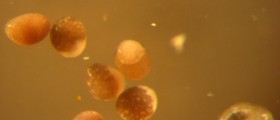
1. Make sure you are eligible. Most states require prospective donors to be at least 21 but not over 35 years old.
2. Locate an egg donation center near you. Be aware that while the overwhelming majority of fertility centers are ethical and financially responsible, you will want to make sure there are no complaints before your state medical boards or the BBB about the center before you volunteer to donate your eggs.
3. Be ready for some paperwork and several interviews. Both the fertility center and prospective parents will want to know about both your physical characteristics (hair color, skin color, eye color, weight, height) and your life and lifestyle (education, social background, work, and so on). You will be interviewed by a psychologist to make sure that you will not be harmed by the process, and you will also be expected to see a doctor and a genetic counselor.
4. The next steps in the procedure involve injections to induce ovulation, some of which you will take at a doctor's office, and some of which you will give yourself. Side effects are relatively rare, but can include hot flashes.
5. After 28 days, prospective donors give themselves a "trigger shot" of a hormone called hCG at home. About 34 hours later they report to the assisted fertility center to have eggs collected. Donors are given a sedative during the procedure, and most women don't remember anything about the experience. Complications are not impossible, but most donors go back to their normal day to day schedules the day after collection.
6. Most women who donate eggs are eligible for compensation of $3,000 to $25,000, depending on the desirability of their personal characteristics. It is also possible to direct a donation to a couple of the donor's choice, although most states require binding legal agreements signed by all parties to the pregnancy (egg donor, sperm donor, surrogate mother, and both parents, in California) before the transaction is complete. It is also possible to donate eggs for free. Most women who participate in egg donation programs find the risks low and the rewards high. For more information, see the many forthcoming articles on this site about specific geographic locations and their opportunities for egg donation.

















Your thoughts on this
Loading...